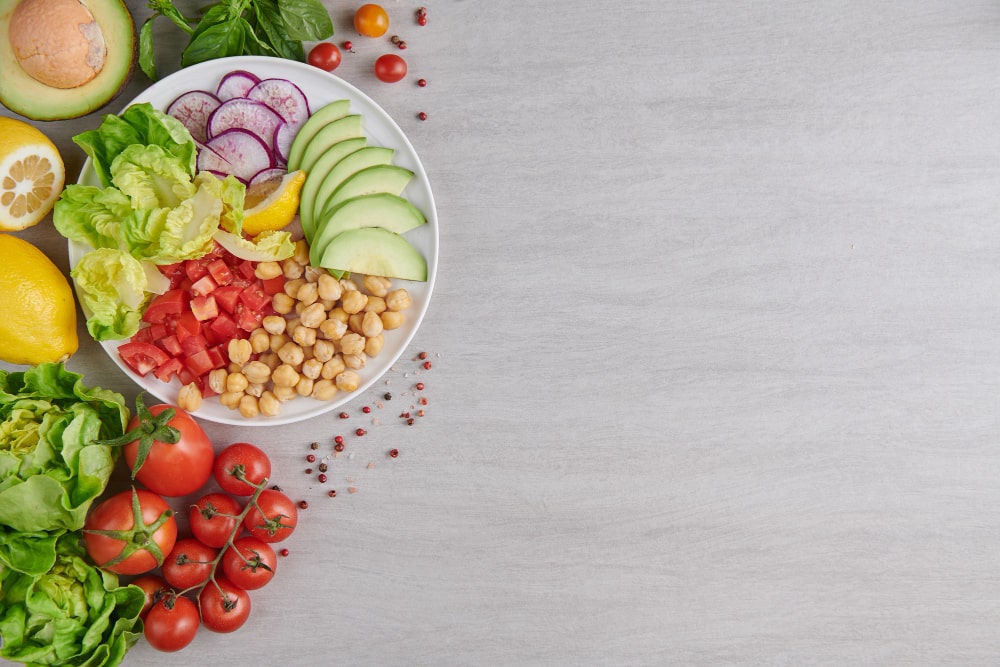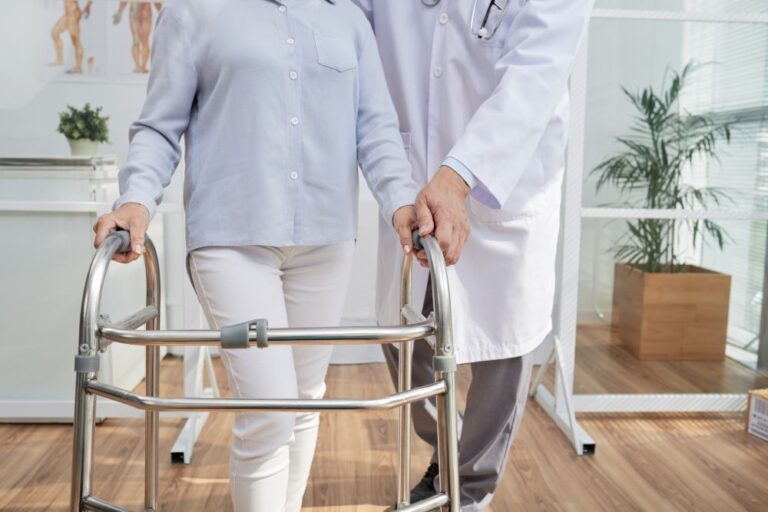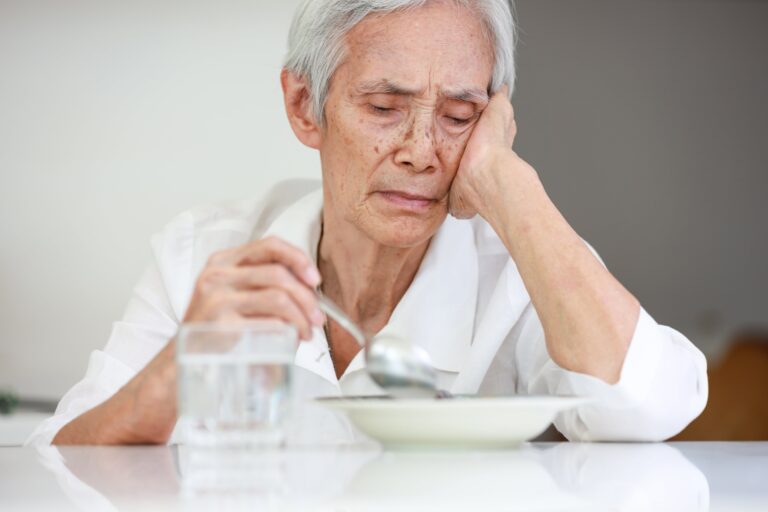Although a healthy, nutritious and balanced is quite necessary every time it becomes obligatory, especially after an injury or any surgical procedure in which patients usually come across blood loss and weakness. Therefore, it becomes a must to regularly take balanced nutrition after surgery so, that a speedy recovery may occur. Some of the advantages of taking a healthy and balanced post-surgery diet are as follows:
- Makes the healing process faster.
- Helps to increase the red blood cell count.
- Boosts the energy level of the body.
- Activates the immune system to combat any infection.
- Improves the wound healing process.
During an injury or surgery, the body comes up with the healing process in which it produces “stress hormones” and thus the body needs more and more proteins, calories from carbohydrates, more supply of amino acids, vitamins, zinc and other materials. The best reservoir of all these is a “healthy diet” which supplies all the necessary nutrients to the body which are needed in the healing process. If we don’t have enough proteins or calories in the diet, low protein levels will cause a reduction in collagen development which will slow down the overall healing process.
Similarly, a proper diet with fresh fruits, vegetables and whole grains also helps to reduce inflammation.
In this article, you will find everything you need to know about a proper diet after surgery including the provision that is most effective in wound healing to reducing inflammation. This article will also cover the dietary regimen that will boost your immune system and fasten your recovery in case of an injury or surgery. You will also get amazing diet plan ideas for your breakfast, lunch, dinner and even snacks. And most importantly you will also get to know about the food stuff, you must not eat after surgery or an injury to avoid any interruption in the healing process.
Essential Nutrients for Wound Healing
Protein
Proteins are a vital part of life. They are found in almost every cell of the body. They regulate the metabolism. Nearly all enzymes are proteins. Haemoglobin is the most important protein of the body that is responsible for the transport of oxygen to all the tissues of the body. Almost 10,000 proteins are present in the human body which is made up of 20 different types of amino acids.
According to DRI (dietary Reference Intake) report, about 0.8 g of protein is needed per kilogram of the body weight of a normal healthy adult person. Failure to get the desired protein level may result in groth failure, weakening of the immune system and various cardiac and respiratory diseases.
The Role of Protein in wound healing
As the proteins are the building block of cell and tissue growth, cell repair and renewal during wound healing. They play important role in the “inflammatory phase” where they prevent the prolonged inflammatory phase as well as are important in the “remodelling phase’’, If not taken in the required amount they can prolong the inflammatory phase and can increase the susceptibility to infection. Proteins not only carry oxygen through the body but also balance body fluids, fight against infection and make the recovery process faster.
High-protein foods to eat after surgery
The top high-protein foods for wound healing that one must take after surgery to enhance the recovery process are given:
Proteins in Various Food Items:
● Chicken Breast 31g/100g
● Beef 26g/100g
● Canned Tuna 8g
● Salmon 20g/100g
● Cheese 25g/100g
● Egg 13g/100g
● Greek yoghurt 10g/100g
● Baked beans 6g/100g
● Black beans 8g
● Soy milk 3.4g/100ml
● Almond 21g/100g
● Roasted peanuts 25.8g/100g
● Wheat germs 31g/100g
● Glass of milk 3.4 g
Vitamin C
Vitamin C also known as “Ascorbic Acid” is an important nutrient in the human diet. It strengthens the immune system and protects against various cardiovascular and eye diseases. It also plays the role of an antioxidant. It is needed in the body for the formation of blood vessels, muscles, cartilage and collagen in bones. It also plays an important role in the healing process. It is necessary for all phases of wound healing. In the Inflammatory phase, it is needed for neutrophil apoptosis and clearance. In the proliferative phase, it is involved in the synthesis, maturation, secretion and degradation of collagen.
The Role of Vitamin C in collagen synthesis
Collagen fibres account for about 80% of the dry dry weight of the cells in the human body. They are also responsible for providing structure, shape, strength and stiffness to the dermal tissues. In the case of surgery or wound, collagen synthesis is the most important process of recovery in which Vitamin C plays a key role. It is an essential cofactor of the two enzymes required for collagen synthesis prolyl hydroxylase which stabilizes the collagen molecule and lysyl hydroxylase needed to give the structural strength to the collagen molecules.
Foods high in vitamin C
Following is the list of the foodstuff that has a high content of Vitamin C that must be taken to improve the recovery process.
● Guavas 228.3mg/100g
● Kiwifruit 92.7mg/100g
● Broccoli 89.2mg/100g
● Red peppers 80.4mg/100g
● Tomato 20mg
● Oranges 53.2mg/100g
● Strawberries 58.5mg/100g
● Grapefruit 31.2mg/100g
● Papaya 235mg
Zinc
Zinc is a micronutrient of the human body which means it is required in very minute amounts for normal body functioning. It plays a key role in cell growth, repairing damaged cells and tissues, and maintaining a healthy immune system.
The Role of Zinc in immune function and wound healing
Zinc is crucial for immune function as the organs where the immune cells are generated i.e. thymus and the bone marrow need zinc as the vital element for their normal functioning. In addition to this, zinc also regulated the various immune cells e.g. monocytes, neutrophils, and T and B cells which are the key components of the immune system. In addition to immune function, zinc also plays an important role in wound healing. It is necessary for all phases of the wound-healing process. It is involved in all processes including oxidative stress, membrane repair, re-epithelization, immune defence, and angiogenesis to scar formation.
Foods High in Zinc
Some of the food that have a hight zinc proportion and are nutritionally very beneficial are listed below:
● Oysters
● Chicken legpiece
● Pumpkin Seeds
● Legumes
● Sweet Potatoes
● Dairy Products
● Oats
● Chickpeas
Anti-inflammatory Foods for Reduced Swelling
Omega-3 fatty acids
They are important in maintaining a healthy body. They are the most important component of every cell wall. They help prevent various heart, lung, and blood vessel diseases and keep the immune system working properly.
The role of omega-3s in reducing inflammation
Most of the cell membranes and the cells have omega 3 as their component. These Omega-3’s make Omega-3 metabolites which turn out the inflammatory response and turn in the healing process. Actually, Omega-3 fatty acids stop the cyclooxygenase enzyme which produces prostaglandin which is responsible for inflammation. Thus, it helps in the healing process and reduces inflammation.
Foods high in omega-3s
Some of the foods that have a higher Omega-3 content in them are enlisted here:
● Flax Seeds
● Fish especially Salmon
● Shellfish
● Avocados
● Walnuts
● Canola Oil
● Leafy green vegetables
● Eggs
Turmeric
Turmeric is an important component of our kitchen items which not only make our food delicious but also has several advantages. It is rich in phytonutrients that neutralize free radicals and also protect the body from damage.
The anti-inflammatory properties of turmeric
For centuries turmeric is used to cure a no. of diseases including inflammation. Its anti-inflammatory effect is due to its ability to inhibit the action of cyclooxygenase, lipoxygenase and inducible nitric oxide synthase. It is due to these effects turmeric is used as an anti-inflammatory agent particularly when used in high quantities.
How to incorporate turmeric into your diet
Turmeric can be used in daily diet by adding it to various dishes as a spice in small pinches. As we can use a pinch of turmeric in fried eggs, and roasted vegetables and we can also add it to rice. It can also be used in soups and several other dishes. A small amount of turmeric regulates the metabolism as well as fulfils the daily requirement.
Leafy greens
Leafy vegetables are also known as leafy greens. They include various herbs, and green vegetables like spinach, cabbage, mint and many more. They are used both as cooked and raw as in salads.
The benefits of leafy greens for reducing inflammation
Many leafy greens such as spinach, kale and collard are known to have anti-inflammatory action. It is because researchers have shown that they contain Vitamin A, D, E and K which have considerable action against inflammation. Thus, the presence of these green vegetables is considered anti-inflammatory.
Examples of leafy greens to include in your diet
Some of the examples of the leafy green vegetables from the daily diet are as given:
● Spinach
● Parsely
● Kale
● Cabbage
● Broccoli
● Lettuce
● Coriander
Foods for Immune System Support
Probiotics
Probiotics are generally the living microorganisms that are consumed with the claim that they provide health benefits and improve or restore the gut microbiota.
The Role of Probiotics in immune function
Probiotics generally improve the immune response by increasing specific antibody production. These antibodies stop the spread of pathogenic bacteria. In addition, they modulate the functions of macrophages, B and T cells, as well as dendritic cells to influence the host’s innate and adaptive response.
Foods high in probiotics
Some of the foods that have a higher probiotics value that helps in the process of digestion and improves gut health are listed below:
● Yogurt
● Buttermilk
● Raw Milk and Cheese
● Sour Dough
● Pickles
● Miso
● Kefir
Vitamin A
Vitamin A is also referred to as Retinol due to the pigment that it produces in the retina of the eye. Other related compounds are retinal and retinoic acid.
The role of vitamin A in immune function
Retinol is very important in boosting immune function as it enhances the production and activity of leucocytes also known as White blood cells. It also regulates the first line of defence against pathogens i.e. it maintains and strengthens the mucus membrane and epithelial tissues. Vitamin A is also known as an anti-inflammatory vitamin because of its critical role in the immune response.
Foods high in vitamin A
Vitamin A is generally present in large amounts in green leafy vegetables e.g spinach, lettuce and broccoli. It is also present in meat e.g beef as well as in fish liver oil. Vitamin A can also be obtained through carrots, eggs and sweet potatoes.
Hydrating Foods for Improved Recovery
Importance of hydration for recovery
If you have gone through some kind of surgery or have any injuries you must stay hydrated to recover quickly. Staying hydrated is very important because it helps the nutrients to go into cells. It also helps to filter the toxins out of the body. It keeps the joints lubricated and helps to maintain the organ functioning properly. It also maintains the body temperature as well as the pH balance. Moreover, it prevents the risk of infections and improves sleep quality.
Foods with high water content
The foodstuff which has the highest water content is as follows:
● Cucumber: It has about 95% of water content.
● Tomatoes: One cup of sliced tomatoes has 170g of water.
● Apples: 86% of water content.
● Water Melon: 92% of water content.
● Pear: 92% of water content.
● Pineapple: 95% of water content.
● Oranges: 86% of water content.
How to stay hydrated during recovery
It is very important to stay hydrated to recover quickly. First of all, you must drink water in short intervals of time. Use lime water to stay hydrated. In addition to this, increase the intake of water-rich food items like water-rich fruits, whole grains and vegetables. Milk and yoghurt are also good sources of hydration and they also contain the necessary electrolytes that are needed for your body.
Foods to Avoid After Surgery
Foods that can inhibit wound healing
Just like a healthy balanced diet can improve the recovery process and make the wound healing process faster. There are certain foods that can inhibit or delay the recovery process. They must not be taken during a recovery process. For example, Food high in sugar content has a negative impact on collagen and also impacts the regenerative phase of open wounds. This will slow down the recovery process and wounds will take longer to heal. Such unhealthy foods must be avoided during the recovery process.
Foods that can increase inflammation
Some foods can also increase inflammation such as soda and other sweetened beverages, french fries, refined carbohydrates, red meat and margarine are the foodstuff that increases the inflammation. These food items must be avoided to reduce inflammation.
Examples of foods to avoid during recovery
Examples of the food items that can inhibit or delay wound healing that should not be taken in the post-surgery or recovery period are as follows:
● Fried food
● Candies
● Soda Drinks
● Doughnuts
● Cookies
● High sugar-content food
Meal Ideas for Post-Surgery Recovery
Breakfast ideas
There are plenty of ideas for the breakfast after surgery. As the mouth taste is not good and often people do experience a loss of appetite and Nausea.
❖ Soup and Broths are good choices to be taken for breakfast.
❖ A few pieces of fresh fruits can also be taken in the breakfast.
❖ A slice of bread along with cheese or yoghurt is another good idea.
❖ Egg with toast is also a healthy choice.
❖ Oatmeals can also be used in breakfast.
Try to keep the breakfast lighter and include food items that are not very heavy and easy to digest.
Lunch ideas
Whatever you eat after surgery must be healthy and full of nutrition. During lunch, one can use:
❖ The fresh green vegetable salad is a healthy idea.
❖ Smoothie or shake if one can’t eat vegetables or fruits directly in the meal.
❖ A piece of meat e.g Chicken or Beef.
❖ Tunna is also a very healthy choice.
❖ Use Nuts and seeds which are also very healthful.
Dinner ideas
Dinner must be simple and lighter. Some of the Dinner ideas are as follows:
❖ Chicken Noodle soup can be used for dinner.
❖ Beans or Berries can also be used for dinner.
❖ Mini meatloaf muffins are another good choice.
❖ Sausages and Vegetable calzones can be used.
Tips for Making Meal Prep Easier During Recovery
Importance of meal prep during recovery
Meal prep is very important during recovery as it helps you to take a healthy and balanced diet. By meal prepping you can save your a lot of time in daily thinking and deciding what meals are healthy and good for your recovery. You already have prepared that. You can also manage your intake by adjusting the ingredients according to your need and can achieve a faster recovery. Having a well-organized meal will help you to regulate your recovery and will keep you on track to achieve your faster recovery goals.
Tips for easy meal prep
● First of all devise a healthy and balanced diet plan which will help you in your recovery. In this plan, don’t miss any food group that is healthy and nutritious.
● You can also consult a dietician or nutritionist to get a plan for faster recovery.
● Organize all the stuff and keep them in a quality storage container.
● Never miss your routine and consistently save time for proper meal planning.
● Keep a record of your favourite meals which will help to try something new with your favourite ingredients.
● Try to buy the ingredients in bulk quantity it will save you time as well as money.
Conclusion
Your diet plan is one most important things in your recovery. If one will use a healthy and balanced diet, it will help in recovering at a faster pace. While in contrast an unhealthy diet can delay the healing process and recovery may take up to months. If you want to speed up your recovery, improve your immune system and want your wounds to heal faster there is no other way than to use a diet that is healthy, balanced and full of nutrition.
As the food we intake is responsible for our body metabolism so we must carefully choose the diet plan and incorporate all the healing food items in our regular diet so that the repairing process may accelerate which will in turn increase cell growth and speed up the recovery. Make sure that all the above-mentioned food stuff that is good for retrieving from an injury or surgery must be given priority in your diet calendar because food is the fuel that keeps your body running.







